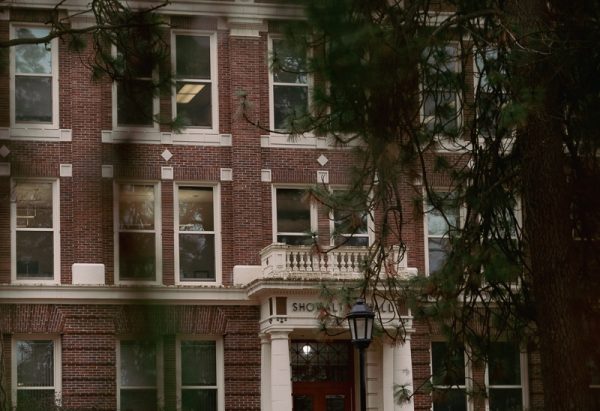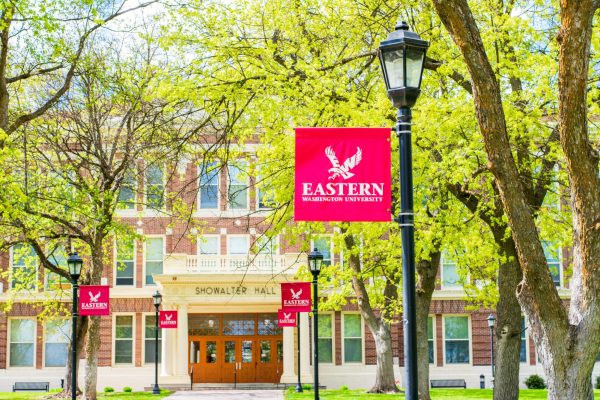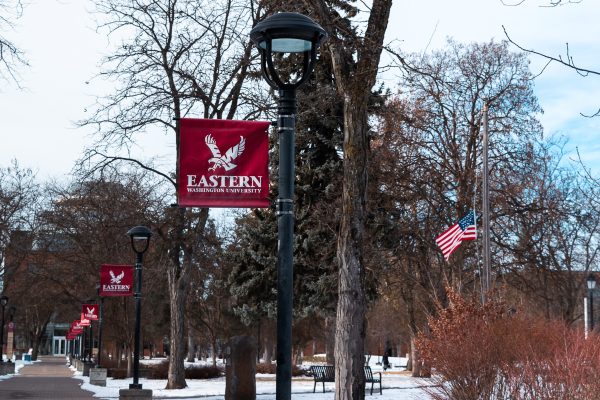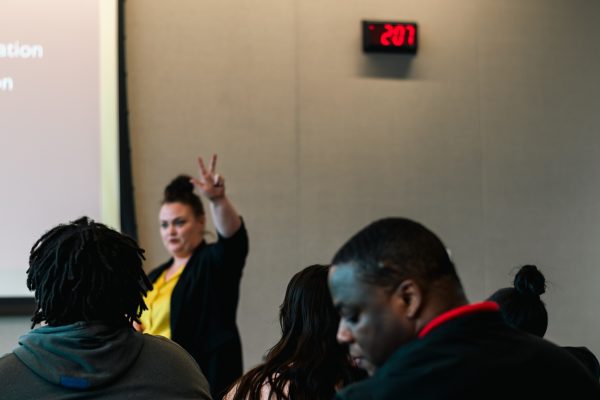Hoffer steers EWU toward pilot program
February 25, 2015
The battle between students and textbooks is a costly one, but a new bill being pushed in Olympia could ease the burden.
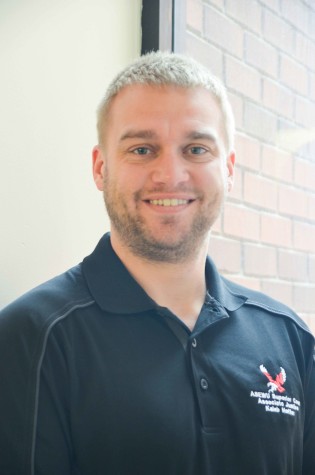
House Bill 1973, introduced by Rep. Melanie Stambaugh of the 25th District, would allow EWU to take part in a pilot program directed at decreasing how much students spend on textbooks.
Through the program, EWU Libraries will be responsible for awarding 10 grants yearly to faculty members to develop or obtain open-source materials.
This will allow instructors to offer students approved, free materials instead of requiring them to buy textbooks.
“The bill was introduced a couple of weeks ago and was assigned to the House Higher Education Committee,” said Jordan Martin, EWU legislative liaison.
On Feb. 20, the bill was passed out of the Higher Education Committee and will now go to the House of Appropriations, a fiscal committee.
The fiscal policy cutoff date is Feb. 27, which means a public hearing on House Bill 1973 and a vote on it by the committee members needs to occur before then, according to Martin. If the bill does not get voted on before Feb. 27, nothing can be done with it until next year.
“In politics, nothing is certain until it’s absolutely done,” said Martin.
The spark behind the bill came from Kaleb Hoffer, EWU’s current ASEWU chief justice.
Right now, students harbor resentment toward textbooks, and they do not see the value in them, according to Hoffer. Some students wait until classes start to see if they actually need the textbooks before ordering them from websites like Amazon, and some students choose not to buy textbooks altogether.
Hoffer said that when he was the 2011-2012 ASEWU finance vice president, he was inspired by a program at a university that added $6 per credit on every student’s tuition to pay for textbooks.
He liked the idea, but it required a “top-down approach,” which forced faculty members to implement the program.
One day, it dawned on him that textbooks could be open-sourced in the same way that some software programs are.
During the summer of 2013, Hoffer approached Rep. Kevin Parker of the 6th District through Facebook.
“I told him about this idea I’ve had for a long time,” said Hoffer. “He seemed to like the idea, but he didn’t run with it.”
Hoffer said he got similar reactions from Eastern’s vice provost and dean of libraries.
In 2014, Hoffer was offered a position on the re-election campaign of Senator Michael Baumgartner of the 6th District because of his interactions with Parker.
Baumgartner invited Hoffer to a meeting at the Washington Policy Center in Seattle and during the four-hour car ride, the two had a one-on-one conversation about Hoffer’s idea for open-source textbooks.
At the time, Baumgartner was concerned about freezing tuition again, said Hoffer.
“I was like, ‘Why don’t you tackle the cost of education from a different angle?’ and I told him, ‘Let’s look at textbooks,’” said Hoffer. “He literally got on his phone then and called up his legislative buddies and said, ‘What do you think of this idea?’”
“Eastern is a smaller university with a diverse population, so the reason it was picked for the program was probably because if it could succeeded here it could succeed anywhere,” said Martin.
Under House Bill 1973, EWU will implement the pilot program at the start of the 2015-2016 academic year and will submit a report on the pilot program starting Nov. 1, 2016.
Martin is planning to appeal to the board of trustees this spring about funding the program with the university’s own money no matter what. That way, if the bill passes then no money is lost, but if it fails then Eastern can continue with the program to try and be a pioneer for it.
“Nothing is ever certain, but open-source materials are the way forward,” said Martin.



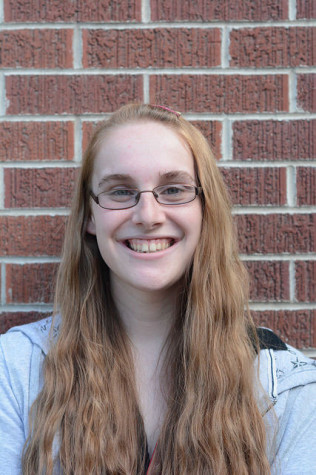


![Simmons said the biggest reasons for her success this year were “God, hard work, and trusting [her] coach and what she has planned.”](https://theeasterner.org/wp-content/uploads/2024/05/image1-1-1200x800.jpg)




